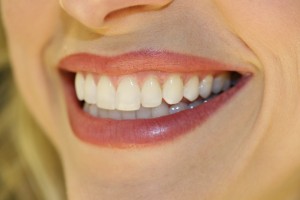Dental bonding can add years to your natural smile and is a pain-free, cost-effective solution for many cosmetic issues you may have with your teeth. The materials used for dental bonding should last for many years, with good oral hygiene habits and regular visits to our office. We can recommend a bonding treatment for multiple situations, such as porcelain veneers or composite resin to fix cracks, fill chips, and mask tooth discoloration.
What Is Dental Bonding?
Dental bonding, also known as tooth bonding, is a non-surgical treatment for dental cosmetic issues. There are two types of dental bonding: composite bonding and adhesive bonding. Composite bonding involves applying a tooth-colored composite material to your teeth to repair discoloration, chips, or gaps. Once this material hardens, we polish it to match your natural teeth. With adhesive bonding, such as for veneers, crowns, and bridges, an adhesive known as an etchant attaches the bonding material to your teeth. Composite bonding is the more affordable of the two, but the porcelain used in veneers is more durable than composite bonding. However, each type of bonding has its merits.
How to Get the Most from Your Dental Bonding
The material used for tooth bonding, regardless of which type, should last up to ten years. Typically, veneers will last longer than composite bonding, but there are several ways you can make your dental bonding last as long as possible, regardless of the material. At the top of the list for enhancing the durability of your bonding is a dedicated commitment to practicing consistent healthy oral hygiene habits, such as brushing and flossing twice a day and rinsing with an alcohol-free mouthwash. You may even want to consider investing in a power toothbrush to maximize your brushing habits. The bonding composite is strong, but not as strong as your natural teeth, so avoid chewing on or eating hard foods, such as ice or candy, or sticky things like gum or taffy. In addition, avoid biting your fingernails and opening packaging with your teeth. Bonding material will also stain just like your natural teeth, so tobacco products, tea, and coffee should be limited as much as possible. Drinking alcohol can also damage your dental bonding.
Dental bonding is one of many revolutionary dental procedures now replacing traditional methods for tooth restoration. It’s a one-visit, cost-effective treatment that can bring back your wide and confident smile. Our dental staff is always ready to answer your questions. For more information about dental bonding, please call River Valley Smiles at 479-646-0706.

